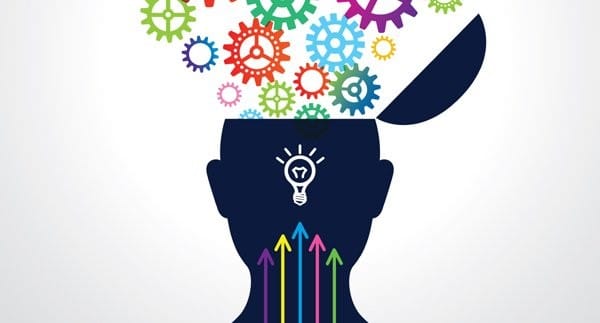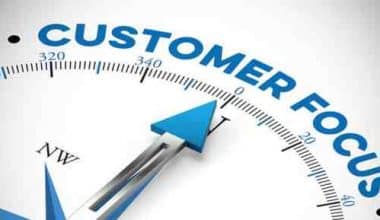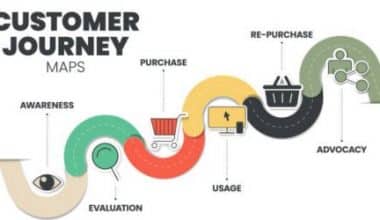Consumer behavior is an important aspect of an organization. By studying consumer behavior, organizations can develop target marketing strategies. They can design products that resonate with their target audience and deliver satisfying customer experiences. It encompasses types, characteristics, and various factors that influence consumer choices, including psychological, social, cultural, and economic aspects.
What is Consumer Behavior?
Consumer behavior can be referred to as the study of individuals, groups, or organizations and the processes they undergo. That is when selecting, purchasing, using, and disposing of products, or services. It also includes ideas, or experiences to satisfy their needs and desires. It involves examining how various factors shape consumers’ decision-making processes and behaviors. Understanding consumer behavior enables businesses to better understand their target audience. And to develop effective marketing strategies, and create products or services that meet consumer needs and preferences. By studying consumer behavior, businesses can gain insights into consumers’ motivations, attitudes, perceptions, and purchasing patterns.
Characteristics of Consumer Behavior
- It is complex and influenced by multiple factors, including personal, social, cultural, and situational factors.
- Consumer behavior is dynamic and can change over time due to evolving needs, experiences, and external influences.
- Consumer behavior is also characterized by individual differences.
- Consumers vary in terms of demographics (age, gender, income, etc.), personality traits, lifestyles, and cultural backgrounds. These differences influence their preferences, decision-making processes, and purchasing behaviors.
- The decision-making process is a fundamental aspect of consumer behavior. It typically involves several stages, including problem recognition (identifying a need or desire), information search (seeking information about available options), evaluation of alternatives, purchase decision, and post-purchase evaluation.
- Various theories and models have been developed to explain and predict consumer behavior. These theories include Maslow’s Hierarchy of Needs, Theory of Planned Behavior, Social Exchange Theory, and Diffusion of Innovation Theory, among others. These theories provide frameworks for understanding the underlying factors and processes that drive consumer behavior.
Types of Consumer Behavior
The various types of consumer behavior include:
#1. Complex Buying Behavior
This occurs when consumers are highly involved in the purchase decision and perceive significant differences between brands.
#2. Dissonance-reducing Buying Behavior
This occurs when consumers are highly involved in the purchase decision but perceive little difference between brands.
#3. Habitual Buying Behavior
This occurs when consumers buy a product or service repeatedly without much thought.
#4. Variety-seeking Buying Behavior
This occurs when consumers switch from one brand or product to another due to boredom or a desire for change.
#5. Impulsive Buying Behavior
This occurs when consumers make buying decisions on a whim without much forethought.
#6. Emotional Buying Behavior
This occurs when consumers make buying decisions based on their emotional state rather than rational decision-making.
#7. Rational Buying Behavior:
This occurs when consumers make buying decisions based on careful consideration and logical thinking.
#8. Social Buying Behavior
This occurs when consumers make buying decisions based on social factors, such as family, friends, or peers.
#9. Personalized Buying Behavior:
This occurs when consumers seek personalized products or services that meet their unique needs.
#10. Culture and Subculture-Buying Behavior
This occurs when consumers make buying decisions based on cultural or subcultural factors, such as religion, nationality, or social class.
Factors Influencing Consumer Behavior
#1. Personal Factors
These include individual characteristics such as age, gender, occupation, income, lifestyle, personality, and attitudes. These factors can influence preferences, needs, and motivations, which in turn affect consumer choices.
#2. Psychological Factors
Consumers are influenced by various psychological processes, including perception, learning, motivation, beliefs, attitudes, and emotions.
#3. Social Factors
Consumers are social beings, and their behavior is influenced by their interactions with others.
#4. Situational factors
The context in which consumers make decisions can significantly impact their behavior.
#5. Marketing factors
Marketing strategies, such as advertising, branding, pricing, product design, and promotions, play a crucial role in shaping their behavior.
#6. Economic Factors
Economic factors such as income, savings, prices, and credit availability can influence consumer behavior.
Aspects of Consumer Behavior
- Decision-making Process: Consumers go through a decision-making process when making a purchase.
- Buying Patterns: Consumers exhibit different buying patterns based on their purchasing habits.
- Influences on Consumer Behavior: Consumers are influenced by various external and internal factors.
- Decision-making Heuristics: Consumers often use mental shortcuts or decision-making heuristics to simplify their choices.
- Online Consumer Behavior: Consumers now have access to vast amounts of information, online reviews, and comparison tools. It influences their decision-making process.
- Post-purchase Behavior: Post-purchase behavior refers to the actions and evaluations consumers undertake after buying a product or service. This includes satisfaction or dissatisfaction with the purchase, brand loyalty, word-of-mouth recommendations, and the potential for repeat purchases.
- Ethical and Sustainable Consumer Behavior: Businesses that align with consumer values can attract and retain environmentally and socially conscious consumers.
Principles of Consumer Behavior
- Principle of Needs and Wants: Consumers have both physiological and psychological needs that drive their behavior.
- Principle of Perception: Consumers perceive and interpret information from their environment in different ways.
- Principle of Motivation: Consumers are motivated by a variety of factors such as needs, desires, aspirations, and goals.
- Principle of Attitudes and Beliefs: Consumers hold attitudes and beliefs towards products, brands, and companies, which affect their purchasing decisions.
- Principle of Learning: Consumers learn from their experiences, both positive and negative, and adjust their behavior accordingly.
- Principle of Social Influence: Consumers are influenced by the people and social groups around them.
- Principle of Decision-Making: Consumers go through a decision-making process when making a purchase.
- Principle of Consumer Segmentation: Consumer segmentation involves dividing the market into distinct groups based on demographic, psychographic, or behavioral factors.
Buying Consumer Behavior
Buying behavior is also known as consumer buying behavior. It refers to the process and actions that individuals or organizations undertake when purchasing products or services. It involves understanding the factors that influence purchasing decisions. The steps consumers go through before making a purchase, and the various types of buying behavior.
Factors of Buying Consumer Behavior
#1. Decision-making Process
Consumers typically go through a decision-making process before making a purchase. This process involves several stages, including identifying a need or want. It also includes gathering information about available options, evaluation of alternatives, purchase decisions, and post-purchase evaluation.
#2. Types of Buying Behavior
Consumers exhibit different types of buying behavior based on their level of involvement and the complexity of the purchase.
#3. Influences on Buying Behavior
Consumer buying behavior is influenced by various factors, including personal, social, and marketing influences.
#4. Purchase Motivations
Consumers have different motivations for making a purchase. Understanding these motivations helps marketers position their products or services effectively.
#5. Decision-making Factors
Consumers consider various factors when making a purchase decision. These factors include price, quality, brand reputation, product features, convenience, availability, and customer reviews.
#6. Online Buying Behavior
Online consumers have access to a wide range of information, reviews, and comparison tools, which influence their decision-making process.
#7. Impulse Buying
Impulse buying refers to spontaneous, unplanned purchases made without much forethought. It often occurs due to emotional triggers, such as seeing a sale or an appealing product display.
Marketing Consumer Behavior
Marketing consumer behavior refers to the study of how consumers interact with marketing efforts and how their behavior is influenced by marketing strategies. It involves understanding how consumers respond to marketing messages, make purchasing decisions, and engage with brands.
Aspects of Marketing Consumer Behavior
#1. Segmentation and Targeting
Marketers segment the consumer market into distinct groups based on characteristics such as demographics, psychographics, behavior, or needs.
#2. Perception and Attention
Consumers are bombarded with marketing stimuli, and their perception and attention play a crucial role in determining which messages they notice and respond to.
#3. Consumer Decision-making Process
Marketers analyze the consumer decision-making process to identify opportunities for influencing consumer choices.
#4. Branding and Position
Branding plays a significant role in shaping consumer behavior. Strong branding helps create positive associations and loyalty among consumers.
#5. Persuasion and Influencing Techniques
Marketers employ various persuasion techniques to influence consumer behavior.
#6. Consumer Attitudes and Beliefs
Consumer attitudes and beliefs significantly impact their purchasing decisions.
#7. Consumer Engagement and Customer Experience
Marketers focus on creating positive customer experiences and fostering consumer engagement with their brands.
#8. Digital Marketing and Social Media
The rise of digital marketing and social media platforms has transformed consumer behavior. Consumers now have access to vast amounts of information, product reviews, and peer recommendations.
Consumer Behavior Master
A Consumer Behavior Master’s is a Master’s degree program focused on the study of consumer behavior, including the psychological, social, and cultural factors that influence such behavior. Such programs equip students with a comprehensive understanding of consumer preferences, judgments, and decision-making, and how to develop effective marketing strategies that target consumer segments. The specific focus of each Consumer Behavior Master program may vary from one university to another.
What are the Types of Consumer Behavior?
Types of consumer behavior include:
- Complex Buying Behavior
- Dissonance-reducing Buying Behavior
- Habitual Buying Behavior
- Variety-seeking Buying Behavior
- Impulsive Buying Behavior
- Emotional Buying Behavior
- Rational Buying Behavior
- Social Buying Behavior
- Personalized Buying Behavior
Factors Influencing Consumer Behavior
- Personal Factors
- Psychological Factors
- Social Factors
- Economic factors
What are the Types of Consumers?
Consumers can be classified into different types based on various criteria. Here are the types of consumers:
- Individual consumers: These are consumers who make purchasing decisions for their personal use or consumption.
- Business consumers: Also known as organizational consumers or B2B (business-to-business) customers. These consumers are organizations or businesses that purchase products or services for their operations or to resell to other consumers.
- Brand-loyal consumers: These consumers exhibit strong loyalty to specific brands and consistently purchase products or services from those brands.
- Price-conscious consumers: These consumers are highly sensitive to price and seek the best value for their money.
- Impulsive consumers: Impulsive consumers make spontaneous and unplanned purchase decisions.
- Rational consumers: Rational consumers are characterized by a systematic and logical approach to decision-making.
- Early adopters: Early adopters are consumers who are among the first to try and adopt new products or technologies.
- Influencer consumers: Influencer consumers have a significant impact on the purchasing decisions of others.
What are the Stages of Consumer Behavior?
The consumer decision-making process consists of several stages that consumers go through when making purchasing decisions. Here are the stages:
- Problem Recognition: Consumers identify a need or problem that requires a solution, which can be triggered by internal or external factors.
- Information Search: Consumers gather information from various sources to evaluate different options and potential solutions to their problems.
- Evaluation of Alternatives: Consumers compare and assess different alternatives based on their needs, preferences, and the information they have gathered.
- Purchase Decision: Consumers make a decision and select a specific product, brand, or store from which to make the purchase.
- Post-Purchase Evaluation: After the purchase, consumers evaluate their satisfaction with the chosen product or service, comparing their expectations with their actual experiences.
- Post-Purchase Behavior: Depending on their level of satisfaction, consumers may engage in post-purchase behaviors.
What are the 6 Elements of Consumer Behavior?
The 6 elements of consumer behavior are:
- Personal factors: These can include a consumer’s age, gender, income level, and values.
- Psychological factors: These can include perception, motivation, beliefs, and attitudes.
- Social factors: These can include culture, family, social class, reference groups, and social norms.
- Product factors: These can include the product’s features, quality, packaging, branding, and pricing.
- Purchase factors: These can include the buying process, payment methods, and customer service.
- Situational factors: These can include the consumer’s environment, time constraints, and mood.
What are the Characteristics of Consumer Behavior?
Consumer behavior is influenced by several characteristics that can vary from one individual to another.
Some characteristics of consumer behavior include:
- Motivation: Consumer behavior is driven by both internal and external factors.
- Needs and Wants: Consumers have various needs and wants which drive their buying behavior.
- Perception: Consumers perceive and interpret information differently.
- Decision-making process: Consumers go through a decision-making process when purchasing a product or service.
- Consumer attitude: Attitudes refer to individuals’ overall evaluation or emotional response towards a specific product, brand, or company.
- Cultural factors: Consumers’ behavior is shaped by their cultural background, including beliefs, values, and customs.
- Social influence: Consumers are influenced by those around them, including family, friends, colleagues, and opinion leaders.
What are the Principles of Consumer Behavior?
Here are some principles of consumer behavior:
- Principle of Needs and Wants: Consumers have both physiological and psychological needs that drive their behavior.
- Principle of Perception: Consumers perceive and interpret information from their environment in different ways.
- Principle of Motivation: Consumers are motivated by a variety of factors such as needs, desires, aspirations, and goals.
- Principle of Attitudes and Beliefs: Consumers hold attitudes and beliefs towards products, brands, and companies, which affect their purchasing decisions.
- Principle of Learning: Consumers learn from their experiences, both positive and negative, and adjust their behavior accordingly.
- Principle of Social Influence: Consumers are influenced by the people and social groups around them.
- Principle of Decision-Making: Consumers go through a decision-making process when making a purchase.
- Principle of Consumer Segmentation: Consumer segmentation involves dividing the market into distinct groups based on demographic, psychographic, or behavioral factors.
Conclusion
Consumers engage in a decision-making process that includes recognizing a problem or need, and seeking information. They also engage in evaluating alternatives, making a purchase, and evaluating the post-purchase experience. These characteristics shape how consumers interact with products and services, and understanding them is crucial for businesses to effectively meet consumer needs and preferences.
The study of consumer behavior encompasses various theories that aim to explain and predict consumer actions. These theories provide frameworks for understanding the underlying motivations, attitudes, and decision-making processes of consumers. By applying these theories, businesses can gain insights into consumer behavior, segment their target audience effectively, and develop marketing strategies that resonate with consumers’ needs and desires. Understanding the theories of consumer behavior allows businesses to design products and services that align with consumers’ preferences.
Related Articles
- WHAT IS A CORE COMPETENCY? Examples and All You Need to Know
- WHAT IS CONTROL IN MANAGEMENT? All You Need To Know
- DEMAND PLANNER: Definition, Duties & How to Become One
- CONSUMER RESEARCH: What It Is & Why It Is Important
- DATA OF A CONSUMER: Definition, Types, and How They Are Using It






